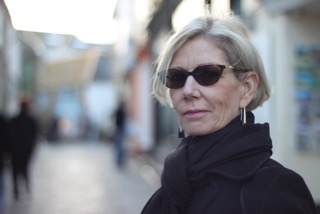| Session | 00 SES 05.1 |
| Time | Wednesday, 5 September, 11:00 - 12:00 |
| Location |
Theatre (Stadttheater) (Seven minute walk from main building. There will be student helpers in “ask me” t-shirts to guide you) |
Setting Aside Settings: on the Contradictory Dynamics of ‘Flat Earth’, ‘Ordinalization’ and ‘Cold Spot’ Governing Projects Shaping Education
This keynote address examines the ways in which governing projects aimed at evaluating and improving the quality of learning and educational attainment in national settings are powered by a contradictory set of logics which ignore the specificities of place, and how and why this matters. By seeing education through a combination of state and market eyes, these projects and their logics produce the very outcomes that they seek to ameliorate; new forms of exclusion and social inequalities. The OECD’s Programme for International Student Assessment (PISA) and the Teaching and Learning International Survey (TALIS), for example, adopt a ‘flat earth’ approach to the socio-environmental settings for teachers and learners. This is paralleled by its pedagogical project for producing change in learners, driven by what Fourcade (2016) calls ‘ordinalization’ which structures the impossibility of equal attainment and equality. These contradictory processes; making the socio-environmental setting for learning invisible, and the singular trajectory for change visible but impossible for some, give rise to uneven and combined development leading to deepening social inequalities in education. A new spatial lexicon has emerged to talk about this unevenness – as ‘cold spots’ (exclusion) and ‘hot spots’ (inclusion) that name the outcomes of these governing practices, on the one hand, whilst guiding education investors toward these sites with ameliorative measures for sale. These developments, constructed as ‘states of exception’, are precisely the opposite; they are the relational outcomes of global governing strategies and market logics as they work in, on, and through, education settings.
Bio

Susan L. Robertson is Professor of Sociology of Education at the University of Cambridge, UK. Susan’s academic career has included holding posts in Australia, New Zealand and the UK. Her longstanding interests have been with transformations of the state and education policy, theorising multiscalar governance, teachers’ labour and social justice. She is founding co-editor of the Routledge journal Globalisation, Societies and Education. Her recent book publications include Global Regionalisms and Higher Education, and Public Private Partnerships in Education.
PDF of Conference Programme
Please consider the environment and do NOT print the entire Programme. The Venue Booklet will be part of the conference material, so no need to print in advance either. Thank you.